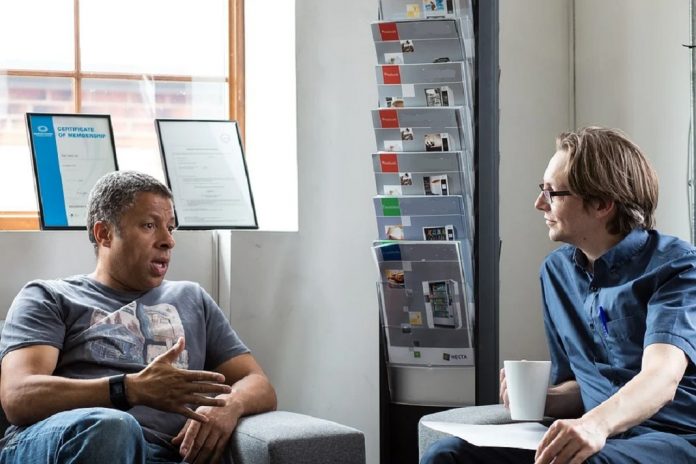by Jason Cooper, Sales Trainer Coach
A relationship is built on trust and empathy. Without these two qualities, it’s hard to make a meaningful connection with another person. This article will explore the numerous ways you can grow your social and emotional intelligence to empathise more effectively with others.
We all want relationships that make us feel fulfilled, where we connect deeply with someone else who understands us for who we really are – but building these kinds of connections takes time and effort
Empathy is essential in work because it’s not anyone else’s job to figure out what their employee needs. Understanding others and empathising with them allows employees to understand better the problems they are going through, which improves the organisation and its culture. When you can walk in their shoes, thinking about other people is fundamental to collaboration and powerful group identity and is the real key to “winning together”.
Building your capability for empathic collaboration starts by asking more questions, actively listening, assuming a curious mindset, and building on others’ ideas. Then, work to encourage empathy and creative collaboration across your team.
Everyone is a gem; everyone possesses superpowers and geniuses. If you can look someone in the eye and help them feel more confident and help them be their best, then that’s a no-lose situation.
About how to build a relationship and its benefits: ‘If you focus on the who and how we work together,… you get far better results, and in a way where you bring people along, people feel very fulfilled.’
It’s (relationship building is) going down towards that emotional and social intelligence field, which is massive now. The way you connect with people is all to do with having a more profound empathetic understanding of who we are, allowing us to communicate better with others by becoming emotionally conscious.
Here are 4 tips to help you build better connections with people
1 How to build trust in relationships
There are a lot of misconceptions about how to build trust in relationships. Many people believe that it is all about looking out for oneself and that if you do the right things, people will take care of themselves. The reality is quite different, though. Some fundamental principles need to be followed when building a business relationship to create a positive outcome for both parties involved.
With any other person, honesty will always help a lot. It is essential that you are honest about everything with your significant other because otherwise, you’ll be causing some severe damage to the relationship.
2 What it Takes to Build Consistency, Together Cohesively
The key to developing consistency is in focus on how we can work together. When you are
consistent in your interactions with external stakeholders, it’s essential to be clear and specific about what you want them to do. Ensure that they understand the message being communicated and match it with your messaging when communicating internally.
It’s a simple concept but needs commitment from all departments within an organisation for long term relationships to thrive.
3 Keep Your Promises
It is essential in your personal relationships; keeping your promises is vital to maintaining the trust and positive relationship with your customer base.
Trust is a sacred thing. Once it is broken, it’s hard to put back together. When your company makes a promise to your customers, it creates an expectation. When money is changing hands under a set of expectations, any violation of that trust can be a huge deal. Your customers will start to feel that they can’t rely on you. They may be less likely to refer your company to their friends and family because they don’t want the same experience. You are losing a customer who you need more than ever right now when your company needs it most.
4 Connection with people and showing mutual respect
The basis of any healthy relationship, respect can be established by:
Treating others with courtesy, kindness and consideration, regardless of their race, religion or gender size.
Listen to what they have to say before voicing your own viewpoint.
Never intrude or cut individuals off while they are in flow or insult, blame, threaten or call peoplenames when you are irritated or upset.
Approaching conflict is something that helps organisations to avoid belittling, demeaning or judging, behaviour.
Remember that constant criticism, condescending, judgement, or demeaning behaviour adds up over time and can constitute bullying. It’s essential to have a one-to-one relationship with your stakeholders. Meet with them regularly and maintain their trust by doing what you say, delivering on time, and providing them with the information they need when they ask for it.
Show your commitment by listening to them and addressing their concerns. Keep in mind that consistency is crucial and how we can work together cohesively across departments so that our message remains consistent.
About the author
Jason Cooper is an accomplished sales and marketing professional and team leader with experience in the Irish, UK and international markets. With more than 25 years of experience, he has a proven track record of outstanding performance in helping people and companies build value with connection and building effective relationships that last.
Jason is a people-focused leader for both clients and colleagues with a tactical ability to recruit, train and motivate top performers who have contributed to increased productivity and revenue growth. He has demonstrated experience in commercial environments, allowing him to help clients achieve their desired business goals. As a certified Coach in various disciplines and Trainer, Jason understands the need for growth in people and has a passion for psychology and behavioural economics knowledge. His core skills lie in building effective relationships with people partners in multiple facets to build relationships.









































